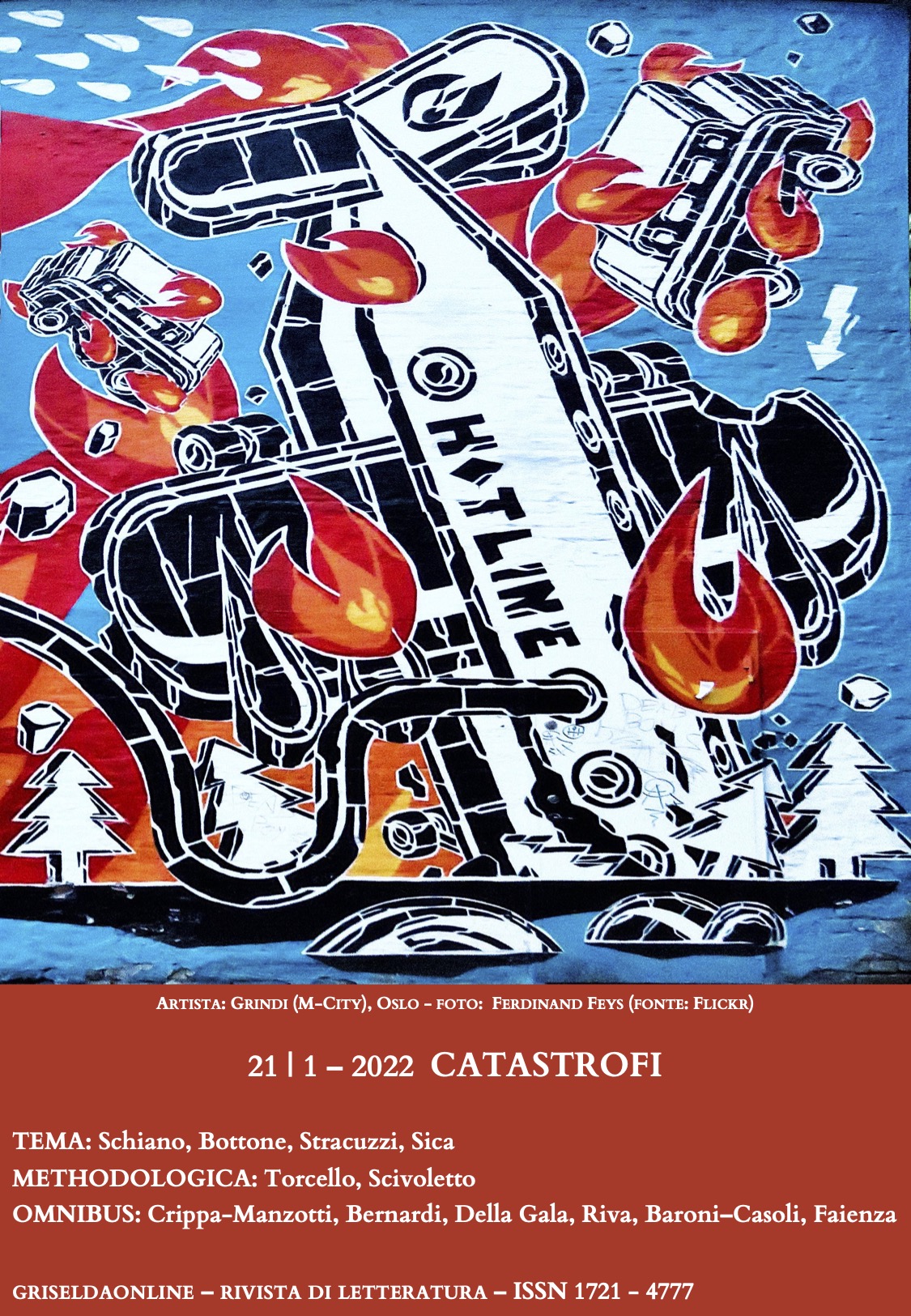When the text is not enough. Rethorical of engaging and pluri-narrative in “L’agenda ritrovata”
DOI:
https://doi.org/10.6092/issn.1721-4777/13204Keywords:
collective writing, committed literature, italian contemporary literature, paratextuality, short storiesAbstract
This proposal focuses on composition strategies adopted by engaged novels, taking as example the collection of short stories named L’agenda ritrovata (Rizzoli, 2017). The aim is to demonstrate the great contribution of paratext and extra text in the success of the whole literary operation, thus leading to a ‘resizing’ of the specific literary qualities. Furthermore, the presence of a precise rhetorical formulary creates a sort of format of engaged literary writings with proper cadences (the Dubt, the Research, The Hypothesis, The Conspiracy) and key figures (the Victim, the Witness, the Leading-object, etc.). The reference to real facts, characters or truly existing dynamics aims at exorcise the rhetorical display: this way, the author claims the immediate relationship between the writing and crime reporting stuff. Moving from these requirements, we aim at demonstrating that the strain of fictional engaged writings swings between freedom of invention and desire to ‘assert’ the truth.
Downloads
Published
How to Cite
Issue
Section
License
Copyright (c) 2022 Lucia Faienza

This work is licensed under a Creative Commons Attribution-ShareAlike 4.0 International License.





